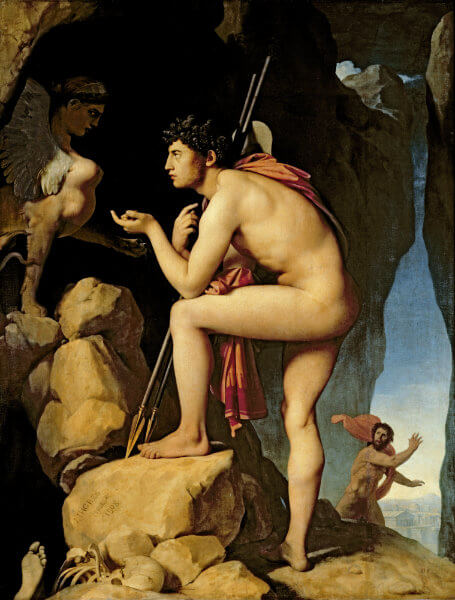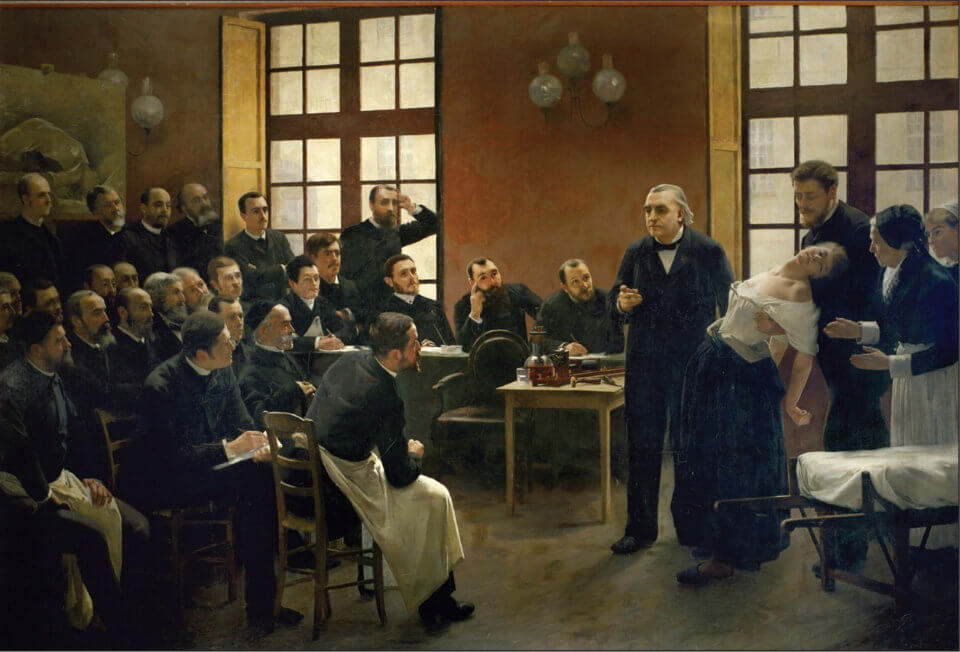This post is part of a larger deep dive
Curious about the role of psychopathy and the Oedipus Complex in The Cell? Check out The Cell Explained!
Or read the full The Cell article!
This post is part of a larger deep dive
Curious about the role of psychopathy and the Oedipus Complex in The Cell? Check out The Cell Explained!
Or read the full The Cell article!

As mentioned above, Bowlby had been greatly influenced by the psychoanalytical theories of Freud, particularly the idea that the initial interactions between child and mother were crucial for the later development of the child.
And if there is an idea that is quintessential Freudian is that of the the Oedipus complex.
Freud believed that the Oedipal complex occurs during the Phallic stage of psychosexual development, which is around 3 to 6 years old. It’s called phallic because, during this period, libido would be mostly concentrated in the erogenous areas of the child’s body (e.g., penis).
The main (and very controversial) idea is that the child starts to experience unconscious sexual desires for the mother.
Note that I don’t think this means that the boy is consciouslly wishing to have sexual intercourse with the mother. As I understand it, it is more like the boy desires satisfaction from his mother somehow, but he doesn’t really have a clear idea (definitely not what adults think of genital sex).
Also note that Freud considered these thoughts to be completely unconscious, so the child isn’t consciouly brooding over how best to get satisfaction from the mother. It is essentially energy (libido) residing in the boy, which will then manifest itself into behaviours.

For example, Freud saw boys’ behaviours such as becoming fixated on the mother (e.g, always asking for her attention, saying he wants to marry her, wanting to sleep on her bed), and acting angry and hostile towards the father (e.g., when the father shows affection to the mother), as telltale signs that the child had entered the Oedipus phase.
At the same time, the boy develops feelings of jealousy and envy towards the father. This hostility directed to the father comes about because the boy realises that the mother also shows affection towards the father. Thus, the boy starts to see the father as a sort of a rival for the mother’s attention, and so, needs to be taken out of the picture.
However, the thought of disposing his father’s position with mother, and take his place, causes anxiety in the boy, because the boy knows the father is much stronger than he is. This anxiety takes the form of an irrational fear that the father will remove the boy’s penis as punishment for desiring the mother (what Freud coined as castration anxiety).

Not wishing that fate, the boy begins to identify with the father, mimicking his father’s attitudes, mannerisms and behaviour. The idea is that if the father sees the boy as someone similar to him, he will not be punitive.
It is at this point the superego develops. The boy internalises the moral values of the parents, and realises that inappropriate impulses should not be acted upon.
This covert identification with the father also causes a shift in the boy’s desires from the mother towards other women.
According to classical psychoanalysis, the Oedipus complex is fully resolved once the boy positively identifies with the father, which allows for a mature sexual identity to develop.

In psychoanalysis, thoughts that cause too much anxiety on the child (e.g., because they are extremely embarrassing or frightening) are often repressed and sent to the unconscious mind. These problematic thoughts, however, usually find a way to express themselves consciously, forming what psychoanalysts call a neurosis.
For example, unconscious sexual desire for the mother are too emotional for a child to handle, so these thoughts are sent to and locked in the unconscious. However, if those sexual urges aren’t acknowledged, they do not simply stay dormant, they will actually want to be expressed. That unconscious and repressed content can partly escape the surveillance of the superego by disguising itself as symptoms, such as phobias, depression and irrational anxiety.
Furthermore, if the boy doesn’t get the love from his mother (perhaps due to maternal neglect), he will be constantly attracted by women whose personality reminds him of her mother. This is a coping mechanism to compensate for the love gap left by the mother, so the boy will try to get that lost love from other women.
Finally, remember that the boy develops castration anxiety during the Oedipus complex stage. If this anxiety is continually being repressed (say, because the father is absent or punitive), then this anxiety will remain unconscious and will manifest itself as symptoms later in life. For example, he might be competitive towards other men that resemble his father.
A much larger problem becomes when the parents become harshly punitive and physically abusive to their children.

According to Freud and followers, identification with the aggressor is a defense mechanism to protect one’s conscious self from caving in to anxiety.
For example, if a child is subjected to harsh punishment from his father, that child might become a bully later in life, perhaps even using the same types of punishment on his own children.
According to psychoanalysts, people with “identification with the aggressor” adopt the methods and points of view of an aggressor in order to feel that they are in control. What was passive and helpless once, has now become active and in control. What was once experienced as submission is now experienced as dominance.
Normally, “identification with the aggressor” occurs initially during the Oedipus phase, when the boy identifies with his father in order to cope with the castration anxiety. This identification will form the basis of the child’s superego – the seat of morals and values that will shape the adult conscious mind.
If the father shows affection and has an appropriate response when the boy is behaving inappropriately (e.g., it talks to the boy when the boy becomes angry at him for no reason, explains why he can’t be always with mommy), the boy will gradually realise that he can learn from his father. Ultimately, the father becomes a role model rather than a rival.
But what if the father is actually punitive and abusive during the Oedipus phase? Alas, Freud and subsequent followers say little about this.
My take is that if the father doesn’t step down and constantly instill fear in the boy, he will internalise fear. For this boy, anxiety will permeate his life, he will constantly feel inferior and insignificant, maybe falling into a depression, being socially reclusive and/or developing a psychosis.
Very solid analysis!! I’m a clinical mental health therapist and I was looking for a good clinical breakdown of this movie. This one did not disappoint. Your analysis was thorough and spot on. ❤
Hi Aliya,
Thank you very much for your comment!
Given that you are a mental health therapist, I would be very curious to hear your opinion on how clinical practitioners would even approach a case like that of Carl Stargher (provided he sought help in the first place, of course)? His case seems so extreme that I wonder how current therapies would be prepared to dealing with such cases. Any thoughts?